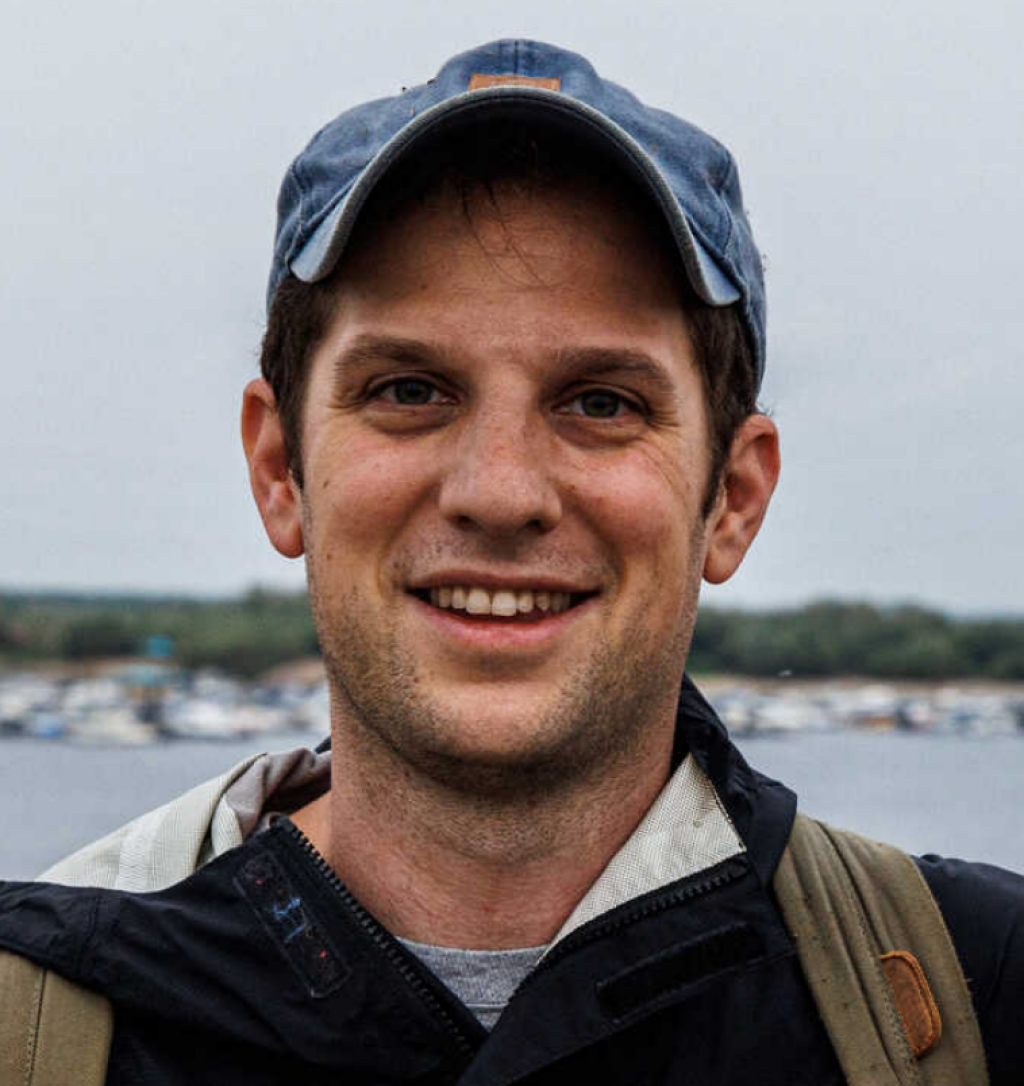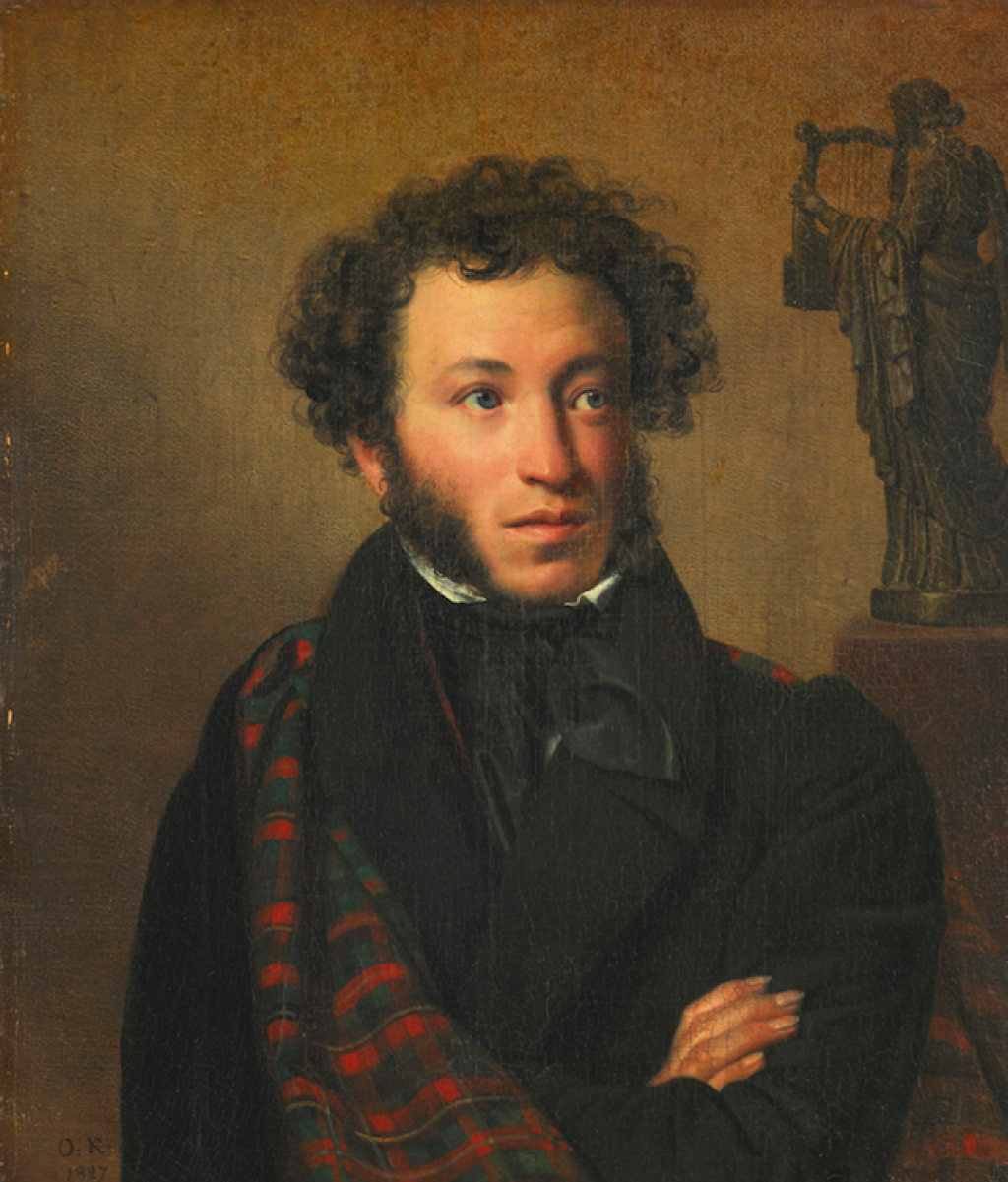The Jordan Center stands with all the people of Ukraine, Russia, and the rest of the world who oppose the Russian invasion of Ukraine. See our statement here.
Peter Rutland is a Professor of Government at Wesleyan University in Middletown, Connecticut.
Above: Journalist Evan Gershkovich, pictured in 2021. Source
Two men approached me as I walked out of the government building where I had just been interviewing the local finance minister.
“We are from the FSB. Come with us.”
Everyone who has visited Russia probably imagined being arrested by the security services (now called the FSB, successor to the KGB). That vague possibility may have added to the thrill of traveling to an exotic land. Well, in 2002 it finally happened to me.
I was spending a week in the Republic of Mari-El, 500 miles east of Moscow, to monitor the census—the first held since the dissolution of the Soviet Union in 1991. I was part of an international team of scholars sent to more than a dozen regions of Russia, in a project coordinated by Valerii Tishkov, head of the Russian Academy of Sciences Institute of Ethnography. We were interested in how people responded to questions about their ethnic identity and language use.
The FSB officials took me back to their headquarters. In such circumstances the US State Department advises people to say nothing, to speak only in English—not Russian—and to ask to contact the embassy. Instead, I decided to cooperate. I told them (in Russian) that I would talk to them if they promised to put me on a train leaving Mari El that night. (There was one train a day to and from Moscow: an 18 hour trip.) They agreed.
They interrogated me for about four hours. It was the only meeting that week when I was not offered tea. The questions were all on the same theme: “How long have you worked for the CIA? Why did the CIA send you here?” “Do you want another Chechnya in Mari-El?” etc. I insisted that I was not working for any intelligence agency, I was just a university professor. I showed them a letter approving the project signed by the Minister for Regional and National Affairs of the Russian Federation. That seemed to mollify them, or at least plant a seed of doubt in their mind. It was classic good cop/bad cop: the young officer was angry and aggressive, the older one was more measured. (He also had a stutter.) I was afraid that they would plant evidence that I had been gathering secret information—Mari-El has many arms factories, including one that manufactures the S300 air defense system. It was closed to foreigners in Soviet times.
One problem was that when I arrived in Yoshkar-Ola, the capital of Mari-El, I was told by the local ethnographer partner that the census office would not allow me to accompany their teams—despite the instruction to cooperate from the ministry in Moscow. Instead, I spent the week interviewing local officials, politicians and journalists.
I was arrested an hour before I was due to meet with the leader of the local Mari national revival movement. The Mari are a Finno-Ugric minority, some 600,000 strong. They have their own republic, but it is tightly controlled by Moscow, and they fear that the Mari language (which is related to Finnish) is being displaced by Russian.
Interviewing the local officials, I realized how swiftly Vladimir Putin had moved since becoming president in 2000, appointing former FSB and military men to staff regional offices and restore central authority—the "power vertical." That proved to be the most important finding from my fraught research trip, one that is still relevant to understanding the dynamics of Putin’s Russia today. At 6:00 PM, the FSB officers took me to the train, as promised. The older one waved me off and actually said, apparently without irony, "Come back and see us sometime."
When I related all this to my colleagues in Moscow, they said I had done the right thing. Presumably, the local FSB did not have permission to arrest me, but they could now file a report and demonstrate their vigilance in defending the Motherland. In 2002, Putin was still in his honeymoon period wooing Western allies; but the Chechen war was grinding on and Islamist terrorism was a real threat. Academic researchers in Russia have often had similar experiences. Usually, the pretext was a violation of your visa regime—such as doing archival research while traveling on a tourist visa.
I said nothing about this incident for 20 years. But it came back to me when I learned of the March 29 arrest of Wall Street Journal reporter Evan Gershkovich in Ekaterinburg. It was the first arrest of a Western journalist since the detention of Nicholas Daniloff in 1986. Gershkovich has been held in Moscow’s Lefortovo prison for over 150 days. On August 26, his detention was extended until November 30. He was presumably detained in order to be exchanged for some high-value Russian prisoner in the US. His trial will probably be in secret, so until he is released we may not know whether they planted evidence of espionage on him, or if he was arrested just for doing his job—interviewing local sources about the state of the economy.
Gershkovich’s arrest is just one more piece of evidence that Russia’s security services are out of control, violating norms of civilized behavior, and so desperate in their efforts to prove Russia is still a "great power" that they need to arrest innocent Americans to demonstrate the might of the Russian state.



